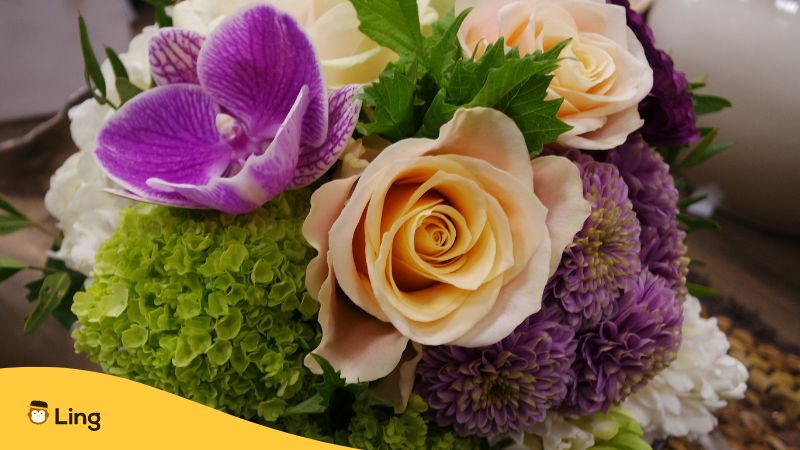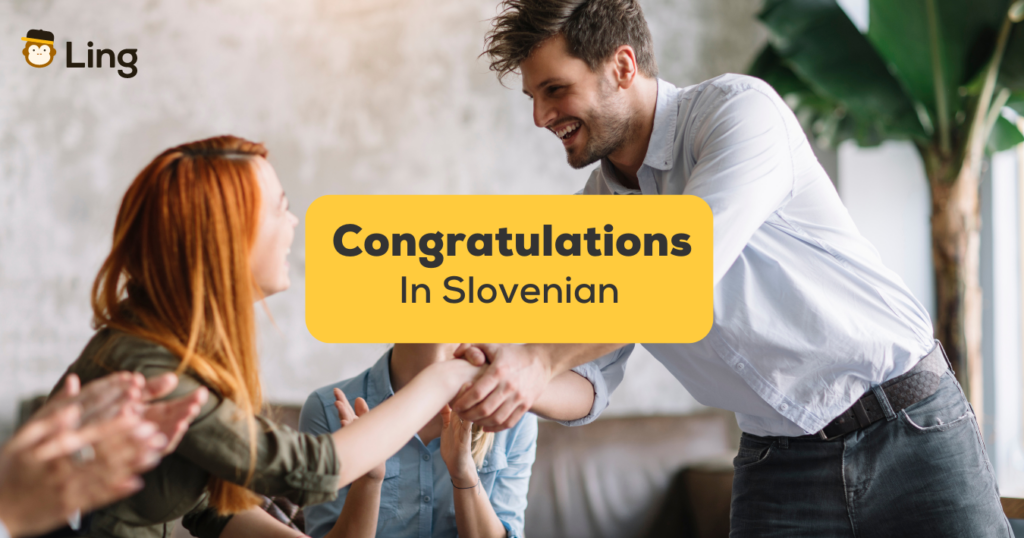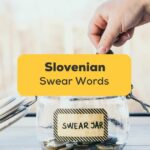Got a piece of good news to celebrate or want to congratulate someone? Well, then, you are in the right place. The word for congratulations in Slovenian is čestitke but there are other words and expressions that you can use.
In this blog post, we will tell you all about when and how to say congratulations In Slovenian. If you are ready to learn Slovenian vocabulary, then let’s get started!
Table of Contents
When To Say Congratulations In Slovenian
Like in other countries, Slovenians congratulate a person when a child is born, on gaining success in any field, to commend someone on their hard work, when a person gets married and on hearing exciting and wonderful news.
If you want to say congratulations you can you čestitke, but to add even more emphasis you can say iskrene čestitke. The word iskreno means honest, or genuine, but in this context it means heartfelt.
The verb for to congratulate is čestitati.
Here’s how to congratulate someone for different occasions:
| Occasion | English Phrase | Slovenian Phrase |
|---|---|---|
| Wedding | Congratulations on your wedding! | Čestitke ob vajini poroki! |
| Birth of a baby | Congratulations on the birth of your baby! | Čestitke ob rojstvu vajinega otroka! |
| Graduation | Congratulations on your graduation! | Čestitke za diplomo! |
| New job | Congratulations on your new job! | Čestitke za novo službo! |
| Promotion | Congratulations on your promotion! | Čestitke za napredovanje! |
| Engagement | Congratulations on your engagement! | Čestitke za zaroko! |
| Retirement | Congratulations on your retirement! | Čestitke ob upokojitvi! |
| Passing an exam | Congratulations on passing your exam! | Čestitke za opravljen test/izpit! |
| Winning an award | Congratulations on winning the award! | Čestitke za osvojeno nagrado! |
| New home | Congratulations on your new home! | Čestitke za nov dom! |
| Sports victory | Congratulations on your victory! | Čestitke za zmago! |
| Business success | Congratulations on your success! | Čestitke za uspeh! |
| Any achievement | Congratulations on your achievement! | Čestitke za dosežek! |
| Personal milestone | Congratulations on reaching this milestone! | Čestitke ob dosegu tega cilja! |
So, for a more heartfelt emphasis, you can add iskrene before čestitke in each phrase, for example:
Iskrene čestitke za vajino poroko! (Heartfelt congratulations on your wedding!)
If you’re talking to a close friend you could also just say čestitam alone, or add the occasion at the end, for example:
Čestitam za diplomo! (Congrats on graduating!)
Čestitam za poroko! (Congrats on the wedding!)
Čestitam za uspeh! (Congrats on your success!)

Other Ways Of Saying Congratulations In Slovenian
When it’s someone’s birthday in Slovenia, you wouldn’t say čestitke, but rather vse najboljše za rojstni dan!
For the same occasion, in a more formal setting, you could say čestitke ob tvojem osebnem prazniku (congratulations on your personal holiday).
When you want to wish someone a happy new year in Slovenian, you would say srečno novo leto!
If it’s someone’s anniversary, you could say čestitke ob obletnici, or you can also say vse najboljše ob obletnici.
How Do You Say Celebration In Slovenian?
When there’s an event worth celebrating, Slovenians call this praznovanje. For example, you could say Danes praznujem rojstni dan (Today I’m celebrating my birthday).
Slovenian Vocabulary Related To Congratulating
Has your friend achieved something awesome recently, and you want to express how proud of them you are? Besides saying čestitke, here’s a bunch of other things you can say to show them what you think of their success:
| English | Slovenian |
|---|---|
| Well done! | Bravo! |
| I’m proud of you! | Ponosen/ponosna sem nate! |
| That’s amazing! | To je fantastično! |
| You nailed it! | Odlično si opravil/a! |
| Great! | Super! |
| Excellent! | Odlično! |
| I knew you could do it! | Vedel/a sem, da ti bo uspelo! |
| What an achievement! | Kakšen dosežek! |
| I’m happy for you! | Vesel/a sem zate! |
| You deserve it! | Zaslužiš si to! |
| Keep up the good work! | Nadaljuj s tako dobrim delom! |
| You’re awesome! | Si fantastičen/fantastična! |
| Hats off to you! | Poklon! |
These are the expressions on how to show your admiration and support in Slovenian. If you want to improve your language skills more, check out the Ling app. It’s a great tool for learning Slovenian and other languages easily.

FAQs About Celebrating In Slovenia
How Do Slovenians Celebrate?
Slovenians make a big deal of any type of celebration.
Families are very important in Slovenia, so family gathering are usually the main part of any celebration. They come together to socialize, dance, drink and eat delicious Slovenian food.
On big events, like holidays, you’ll see decorations all over houses, trees and other places, as a means to celebrate the special occasion, like Christmas, for example. Slovenian also like to give each other gifts.
Slovenian weddings are events that people celebrate with plenty traditions, such as pre-wedding games, the šranga tradition, tossing of rice and the bouquet, as well as having a huge party afterwards! These are all special rituals, that give focus to cultural heritage, strong family connections, and the significance of marriage.
How Do You Say Thank You In Slovenian?
If someone has just congratulated you and you want to say thank you in Slovenian, you can say hvala. Other ways of thanking someone in Slovenian are hvala lepa, and najlepša hvala. Both are used as wanting to express even more gratitude towards someone.
What Is The Social Etiquette In Slovenia?
Slovenians are known to be polite and courteous. When it comes to congratulating someone, it’s expected and appreciated. It’s a simple way to spread good vibes and strengthen relationships. So, if you’re in Slovenia or mingling with Slovenians, don’t hesitate to offer your congrats. It’s a friendly gesture that goes a long way!
Celebrating Success In Slovenia
Let me be the first to extend my congratulations, or čestitke, for making it to the end of this blog. You’ve now gained new knowledge and insight into the Slovenian language.
Just remember: congratulating in Slovenian is more than just being polite. It’s a way to show that you care and acknowledge the warm and inviting nature of the Slovenian people.



































































